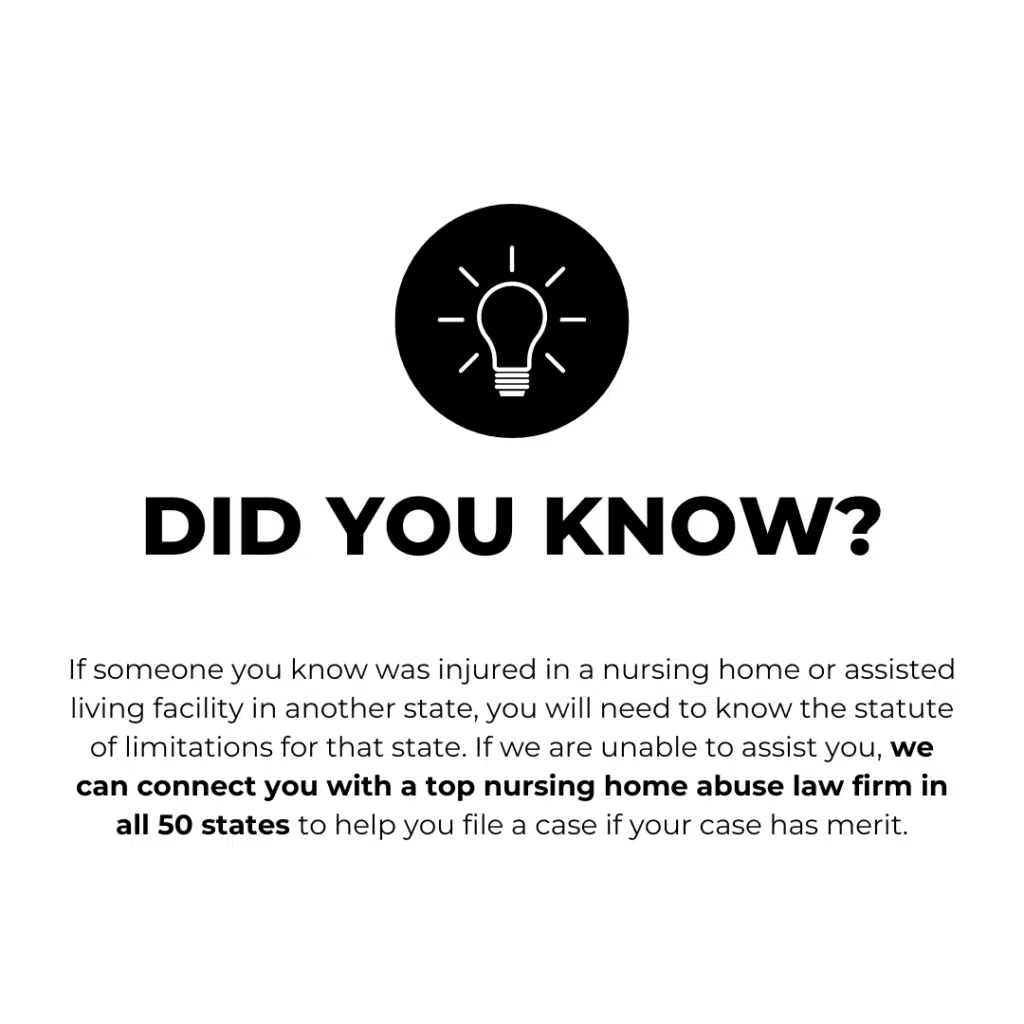
Nursing home abuse and neglect put vulnerable residents at serious risk, leading to malnutrition, dehydration, infections, and preventable injuries. When facilities fail to provide adequate care, residents suffer, and families are left feeling helpless. Lack of supervision, improper medical treatment, and unsafe conditions can result in devastating harm. Understanding the warning signs, knowing your legal rights, and holding negligent facilities accountable are crucial steps in protecting your loved ones. Learn how to take action and seek justice.
November 5, 2024
3 min
In years past, nursing homes would tie residents to chairs or bind their limbs to restrain them. Fortunately, those days are gone. But, a much more silent but equally dangerous practice has emerged: chemically restraining residents. In nursing homes, chemical restraint refers to the use of medications to control a resident’s behavior or symptoms. It is prohibited by federal regulations and federal and state nursing home resident rights laws.
This type of abuse occurs without the resident’s consent. Chemical restraint is concerning because it can lead to overmedication, a diminished quality of life, and death. Each week in nursing facilities across the United States, over 179,000 individuals, primarily elderly people living with dementia, receive antipsychotic drugs without a proper diagnosis. According to the FDA, unnecessary use of antipsychotic drugs kills 15,000 nursing home patients a year.
For many years, the Centers for Medicare and Medicaid Services (CMS) have been worried about nursing home residents in the US being given too many antipsychotic drugs. This is especially true for residents with dementia, where these drugs are used in ways not approved by the government to manage their behaviors, like aggression, agitation, irritability, and wandering.
Understaffing in nursing homes often leads to the overuse of medications as staff members struggle to manage the needs of residents. They may resort to medication as a quick solution to address residents’ needs due to limited time. They do not have enough staff members to take care of their residents. This is inappropriate, dangerous, and against the law.
All medications carry risks of side effects, especially when patients take multiple drugs that might interact negatively. Providing extensive training to staff comes with costs. Especially in for-profit nursing homes where the main goal is to make money for owners and shareholders. Training staff means paying them when they aren’t giving care. Nursing homes would rather use their money elsewhere. This leaves residents in the hands of inadequately trained staff. These staff members rarely know how to interact with residents or how to modify their behavior in a healthy manner. So, they resort to medications to subdue and sedate the residents. Nursing homes are complicit in this illegal process as it allows them to operate nursing homes with fewer staff members.
Nursing home staff have been known to purposely overuse medications on residents to avoid dealing with aggressive or odd behaviors. They are aware that these medications can often sedate them. Therefore, staff members do not have to be bothered by residents.
Sometimes, medications are used to sedate residents or keep them calm, especially if they display behaviors that staff find challenging to manage. However, this approach can have serious consequences such as:
One significant concern is the increased risk of falls associated with these medications. Sedative effects can lead to dizziness and impaired balance. This can make residents more susceptible to accidents and injuries such as fractures, head injuries, and other serious consequences.
Antipsychotic medications can have a big impact on how older adults think and remember. These drugs might make it tough for residents to focus, understand what’s happening around them, and recall important information. This cognitive decline affects their ability to function day-to-day. They are also more vulnerable to feeling isolated and disconnected from others. Tasks that were once simple may become challenging. Residents may struggle to engage in social activities or communicate effectively with others. This cognitive impairment can significantly diminish their quality of life and overall well-being.
The use of antipsychotic medications in nursing homes also increases the risk of stroke. Some of these drugs affect blood pressure and heart health, which can lead to a higher chance of stroke. Changes in blood pressure, like sudden drops when standing up, may make strokes more likely. (A sudden drop in blood pressure can also lead to falls when standing.) Older people are already more prone to strokes because of factors like less flexible blood vessels and a higher risk of high blood pressure. If they have other health issues like diabetes or are overweight, the risk can be even greater when taking antipsychotic drugs.
Strokes can have serious consequences for nursing home residents, causing long-term disabilities such as difficulty moving, speaking, or doing daily tasks. Recovering from a stroke can be tough and costly, involving lots of medical care and rehabilitation services.
Chemical restraint can make residents in nursing homes feel tired and uninterested in things they used to enjoy. They may start to withdraw from activities and avoid talking to others, which can make them feel lonely and sad. Feeling sleepy all the time can also stop residents from doing things they want to do, making them feel like they’re not really living life to the fullest.
Withdrawal from medications can be challenging for nursing home residents. When residents suddenly stop taking these medications or their dose is reduced too quickly, they may experience withdrawal symptoms. These symptoms vary depending on the medication and the person. Some symptoms include agitation, anxiety, trouble sleeping, hallucinations, and the return of the symptoms the medication was treating.
Withdrawal from sedatives can also cause physical symptoms like shaking, sweating, nausea, and a fast heartbeat. These symptoms can be uncomfortable and distressing for residents. Stopping certain medications suddenly can increase the risk of seizures or other serious problems if not managed carefully.
The emotional impact of withdrawal is important too. Residents may feel overwhelmed or scared by the sudden changes, which can worsen any existing mental health issues.
Difficulty swallowing, also known as dysphagia, is a common issue among nursing home residents. Dysphagia can be exacerbated by certain factors, including the use of medications for chemical restraint. Some medications, such as antipsychotics and sedatives, can cause dry mouth and reduced saliva production. This makes it harder for residents to swallow food and liquids properly.
The sedative effects of these medications can impair muscle coordination and weaken the muscles involved in swallowing, further contributing to difficulty swallowing. Residents may experience sensations of food getting stuck in their throat, coughing or choking while eating or drinking. This can also increase the risk of aspiration, where food or liquid enters the airway instead of the esophagus.
Difficulty swallowing can have serious consequences for residents’ nutritional intake and overall health. It can lead to malnutrition, dehydration, and weight loss. They may also be at risk for respiratory infections, such as pneumonia, due to aspiration. Residents with dysphagia may experience discomfort or anxiety around mealtimes. This can impact their quality of life and enjoyment of food.
With the overuse of drugs over a prolonged amount of time, residents may not be able to survive its effects. Their bodies will begin to shut down and may no longer be able to take the medication. According to the FDA, unnecessary use of antipsychotic drugs kills 15,000 nursing home patients a year. It is important for family members to watch for signs before it is too late.

Signs to look out for include:
The drugs most commonly used to restrain nursing home residents are:
If your family member faced harm due to chemical restraint in a nursing home, it’s crucial to seek guidance from a lawyer to understand your options. You and your loved one have the authority to stop this practice if you believe it was done illegally.
Disclaimer: This information is provided for informational purposes only. Nothing in this article should be construed as providing legal advice or the creation of an attorney client relationship. Laws are updated frequently and change from state to state. If you desire legal advice, you can contact Michael Hill Trial Law at www.protectseniors.com, send an email to info@protectseniors.com, call (800) 659-2712 to begin an investigation, or contact another attorney.